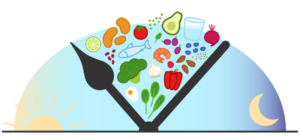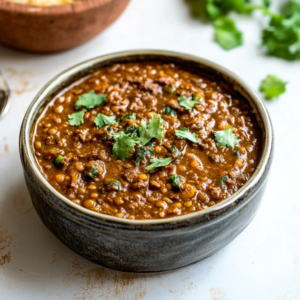Article Categories

The Science of Staying Full | Protein, Fiber & Fat Explained
Unlock the secret to ending constant hunger. Learn how the powerful trio of protein, fiber, and healthy fats works with your body’s biology to create lasting satiety, complete with practical meal combinations from global cuisines.

The Hidden Link Between Insulin Resistance, Fatty Liver, and Cholesterol
The hidden link between insulin resistance, fatty liver, and cholesterol is something many people live with for years without realising it. Blood sugar may look “slightly high,” cholesterol numbers may be borderline, and an ultrasound may quietly mention fatty liver. These problems often appear separate, but in reality, they are deeply connected.

Craving Sugar? Here’s What Your Body Might Be Telling You
Frequent sugar cravings may signal nutrient deficiencies, stress, poor sleep, or blood sugar imbalance. Learn what your body is really asking for.

Acid Reflux and the Indian Diet: What to Eat, What to Avoid, and Why It Matters
Acid reflux is a common digestive concern, but food choices and eating patterns play a powerful role in managing symptoms. With the right approach, the Indian diet can be adapted to support gut comfort, reduce acidity, and improve digestive health.

Longevity and Hormone Supportive Eating: Nourishing the Body for Healthy Aging
Longevity is not just about living longer it’s about aging with vitality, balance, and resilience. Hormone-supportive eating plays a crucial role in regulating metabolism, reducing inflammation, and preserving long-term health as the body ages.

Circadian Nutrition: Why When You Eat Matters as Much as What You Eat
Circadian nutrition focuses on aligning meal timings with the body’s internal clock to support metabolism, digestion, and overall health. By eating in sync with your circadian rhythm, you can improve energy levels, metabolic balance, and long-term well-being without changing what you eat.

The Gut – Immune Connection: How Gut Health Shapes Your Immunity
Nearly 70% of the immune system resides in the gut, making gut health a cornerstone of overall immunity. Emerging research shows that a balanced gut microbiome plays a critical role in immune defence, inflammation control, and long-term health resilience.

Beyond the Cozy Cup: Your Tea is a Potion, Not Just a Beverage
What if your daily cup of tea was more than just comfort—it was a targeted health tool? This International Tea Day, learn how different teas (green, black, matcha, herbal) can support your heart, mind, gut, and sleep with evidence-based guidance.

Sindhi style Dhansak
Unlike the Parsi version which uses meat, this Sindhi style is typically vegetarian—rich, wholesome, and packed with nutrition.

The Hidden Link Between Oral Health and Heart Health
The Hidden Link Between Oral Health and Heart Health is one of the most important and under-discussed connections in modern health. Research shows that the Hidden Link Between Oral Health and Heart Health is driven by inflammation, bacterial movement and lifestyle patterns that impact both the mouth and the cardiovascular system. When oral hygiene is ignored, harmful bacteria and toxins travel from the mouth into the bloodstream, causing inflammation that directly affects artery health, heart muscles and overall immunity.
